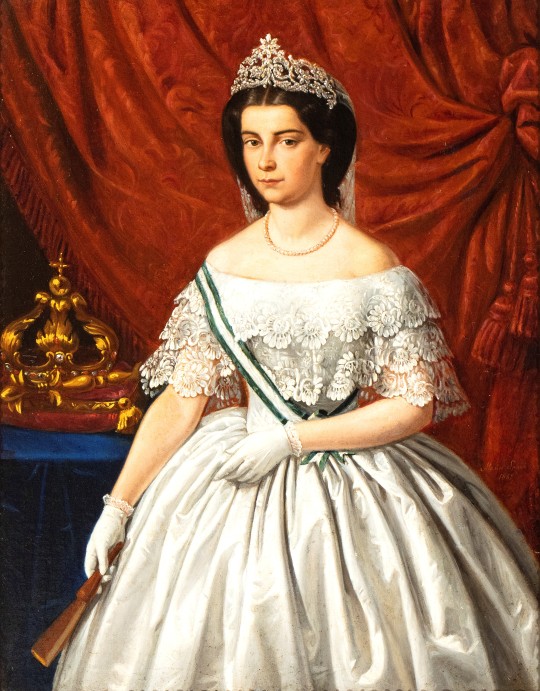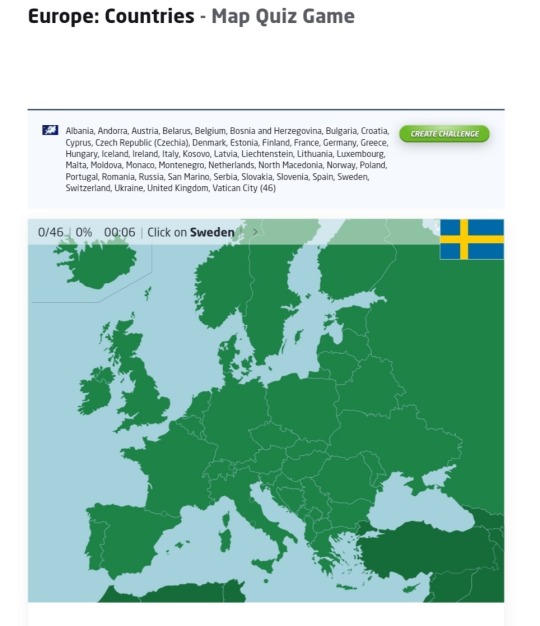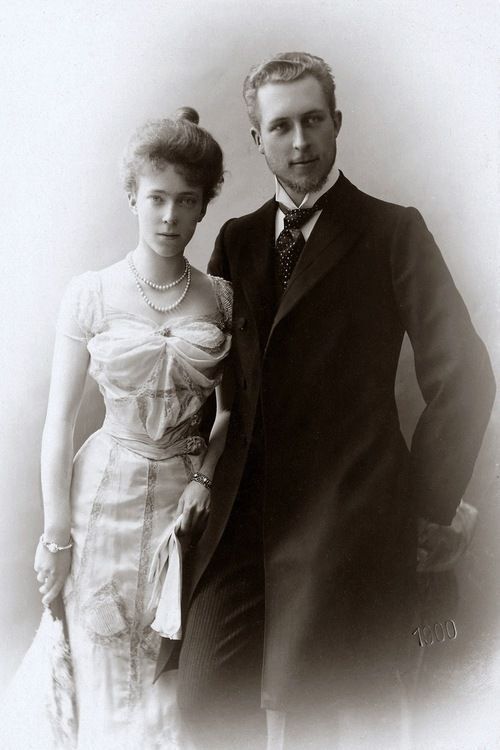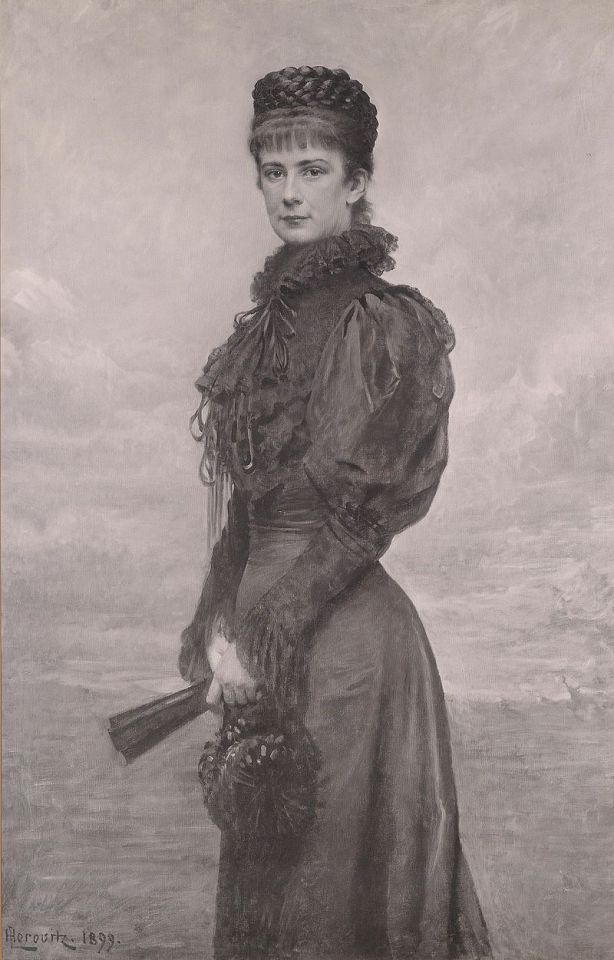Text


King Francesco II and Queen Marie Sophie of the Two Sicilies, by Maria Spanò, 1869.
Via Bertolami Fine Art
#these are copies btw - by 1869 marie and francesco were not posing for state portraits#also they're currently being auctioned for 1700 euros in case someone wants to bide#francesco ii of the two sicilies#queen marie sophie of the two sicilies
26 notes
·
View notes
Text
https://www.geoguessr.com/vgp/3007

#non european 78%#i embarrassed myself trying to find cyprus#but i did super well on the balkans??? which was a genuine surprise#polls
7K notes
·
View notes
Text
Lavalette about the "divorce"
This is taken from "The Memoirs of Count Lavallette". An interesting remark (allegedly) made my Napoleon at the time when he finally decided to give Josephine the boot:
A few days before he had sent for me. He had been looking out for some friend of the empress, who might help to sweeten the bitter about to be presented to her. His choice fell on me. "The nation," he said, "has done so much for me, that I owe her the sacrifice of my dearest affections. Eugène is not young enough for me to keep him for my successor; nor am I old enough to give up all hopes of having children, and yet by Josephine I can have none. The tranquillity of France requires my choosing a new consort [...]"
Emphasis by me.
This statement, if true, would mean that the idea of Eugène suceeding Napoleon indeed had been around and had been seriously considered, at least by some people at court. But much more interesting to me is the reason why it can't happen, according to Napoleon: Eugène is too old.
Eugène, by the end of 1809, had only just turned 29. And with Naps being 40 and often enough in danger of being killed either in war or through assassination - would a successor old enough to immediately take over not have been advantageous?
But of course, Eugène also had been trained in the art of governing a country ever since he had been made viceroy of Italy (this fact was probably what made him look to some as the likely successor - he seemed as if Napoleon already prepared him for it). He was a grown man and, even if he usually in the end obeyed, he did have his own ideas.
Which was precisely the problem, in my opinion. A successor already old enough to develop his own political vision would have been somebody whose opinion an emperor might increasingly need to take into account. A newly born heir would not have any political ideas of his own for almost another two decades. Giving his father a lot more time to govern without the slightest considerations for anything but his own will.
This may have been the cause for Napoleon to call Eugène a "tête carrée" (blockhead, pigheaded) later on Saint Helena. Because Eugène indeed had dared to occasionally consider Napoleon's orders not quite perfect.
It's also why I feel like family life with the King of Rome might have turned much less idyllic very quickly, if Napoleon and his son had lived together until the latter reached puberty. Sooner or later, a Napoleon II would have decided he wanted to do some things differently than his father. And the opinion of the official crown prince could not have been brushed aside as easily as that of mere government officials.
#not only history proved that napoleon was wrong thinking a biological son as heir would guarantee the continuation of the dynasty but also#historically heirs ALWAYS crashed with the monarch that's just basic hereditary monarchy#and we know franz had it in him seeing how he acted in the viennese court. so sorry naps your son 100% was going to challenge you somehow#anyway au in which eugène is seriously considered an heir#napoleon i#eugène de beauharnais duke of leuchtenberg
28 notes
·
View notes
Text
Compañeros, hermanos, amigos escuchen y regocíjense.
Europa está en caos, el imperio español se está derrumbando, Portugal continúa perdiendo influencia y Francia pelea en demasiados frentes, es hora de unir nuestras fuerzas, nuestros pueblos pelearán por la libertad, por la justicia ¡Por América!
No sólo derrotaremos a los gachupines, portugueses y franceses en el campo de batalla ¡También nos veremos mejor que ellos mientras lo hacemos!
Esta encuesta determinará quién de todas estas sensuales personas latinoamericanas será la que opacará más a los europeos, a la que más gente le encantaría tener en su cama por una noche ¡El mas grande ejemplo de exquisitez latinoamericana!
¿Quieres nominar a alguien para tan aclamado premio? Puedes hacerlo aquí
Reglas:
1. Puedes nominar a todas las personas que quieras, el formulario no tiene un límite
2. Animamos a que manden propaganda (en inglés o español o portugués)
3. Sexy man/hombre sexy es un término sin género, todos, todas y todes son bienvenidos.
4. Serán juzgados en base de las edades que tenían durante las guerras por la independencia y los admins se esforzarán para encontrar los retratos apropiados.
Eng:
Comrades, brothers, friends listen and rejoice.
Europe is in chaos, the Spanish empire is collapsing, Portugal continues to lose influence, and France is fighting on too many fronts. It is time to join forces, our people fight for liberty and for justice. For America!
We will not only defeat the gachupines, the Portuguese and the French on the battlefield. We will also do it while looking better than them!
This contest will determine who among these sexy Latin Americans outshines the Europeans the most, who most people would invite to their bed for a night. The best example of the exquisiteness of Latin America!
Do you want to nominate someone for such an honor? Nominate them here.
Rules:
You can nominate as many people as you want. The form does not have a limit.
Propaganda is encouraged (in English or Spanish or Portuguese)
Sexyman is a gender neutral term.
They will be judged based on the age they were during the wars for independence and the admins will try their best to find appropriate portraits.
La lista hasta ahora/The existing list is here:
Virreinato de Nueva España
México:
1. Agustin de Iturbide
2. Leona Vicario
3. Juan Aldama
4. José Maria Morelos y Pavón x3
5. Vicente Guerrero x2
6. Antonio Lopez de Santa Anna
Virreinato del Nuevo Reino de Granada:
Colombia:
7. Antonio Nariño x3
8. Antonio Morales Galavís
9. Policarpa Salavarrieta x2
10. Francisco de Paula Santander x 2
Venezula:
13. Simón Bolívar x2
14. José Antonio Paez
Virreinato del Perú:
Perú
11. Manuela Sáenz de Vergara y Aizpuru
12. Micaela Bastidas
Ecuador:
15. Manuela a.k.a Manuelita Saenz x4
Bolivia:
16. Antonio José de Sucre x 2
17. María Ana Carcelén de Guevara y Larrea-Zurbano
Chile:
21. Manuel Javier Rodríguez y Erdoíza
22. José Miguel Carrera Verdugo
Virreinato del Río de la Plata:
Argentina:
18. Manuel Belgrano
19. José de San Martín x 3
20. Martín Miguel de Güemes
Uruguay:
23. Manuel Ceferino Oribe y Viana
24. Juan Antonio Lavalleja
25. José Fructuoso Rivera y Toscan
Haití:
26. Toussaint L’Ouverture
Brasil/The Empire of Brazil:
27. Joaquim Pires de Carvalho e Albuquerque
28. Maria Quitéria de Jesus x2
29. Joaquim Gonçalves Ledo
30. Maria Leopoldina
31. Pedro I
32. Hipólito José da Costa Pereira Furtado de Mendonça
33. José Bonifácio de Andrada e Silva
34.Francisco Gomes da Silva
35. Domitila de Castro Canto e Melo, Marquesa de Santos
35 notes
·
View notes
Note
Wikipedia gives Bolivar five nationalities. I strongly believe that just as a Tumblr users can have many badges, this man should enter the contest with all five of his flags!
This does raise a question...
#viceroyalty unless you want venezuelans and colombians fighting over Bolívar on the tags#i think the best would be a combination of both: viceroyalty/clarification of current day country#latam independence sexyman
12 notes
·
View notes
Text


Showrunner Katharina Eyssen shared some screenshots of Josephine Thiesen (Princess Marie), Johannes Nussbaum (Archduke Maximilian) and Runa Greinee (Charlotte von Stubenberg) from the editing room of the second season of The Empress (2022).
#i just hope she's playing a real person society has moved past fictional characters in elisabeth media#the empress (2022)#die kaiserin (2022)
17 notes
·
View notes
Text
Wait Josephine Thiesen is a new actress right? Do we already have the cast of the second season's new characters?


Showrunner Katharina Eyssen shared some screenshots of Josephine Thiesen (Princess Marie), Johannes Nussbaum (Archduke Maximilian) and Runa Greinee (Charlotte von Stubenberg) from the editing room of the second season of The Empress (2022).
#maybe ''princess marie'' is maria amelia? i can't think of anyone else that could be close to max#(well charlotte of belgium was called marie charlotte but. no point in hiding her name)#the empress (2022)#die kaiserin (2022)#johannes nussbaum#josephine thiesen#runa greinee
17 notes
·
View notes
Text


Joachim Murat
a. “Serving cunt and cake (seriously, look up his Hussar portrait)”
b. “see: any portrait of him. dat ass in dat hussar's uniform.”
c. “He is the First Horseman of France, he is a Grand Admiral who can’t fuckin sail a ship. He allegedly had “For France and For The Ladies” on his sword. He was often called “Beau Sabreur” which some will tell you means Dashing Swordsman. He looked after his appearance, getting a servant to help curl those locks around his fingers and designing so many uniforms - he had the fashion game! And when he died he asked his firing squad to aim at the heart and spare the face, because he knew he was a sexyman to the end.”
Inês Bilbatua
a. “Natalie Portman!!!!”
Admin note: She's fictional, but her story is based heavily on Goya's life and his paintings.
33 notes
·
View notes
Text
Also, for those who weren't here for the initial decision:
There will be an additional bracket for Latin American Independence sexymen.
We will post a nomination form after Round 1 is completed in all four quadrants.
69 notes
·
View notes
Text


The Wittelsbachs of the branch of dukes in Bavaria, of an independent and wild character, were too contemptuous of the conventions of the century. Among them, respect for their own freedom had the force of law and even bordered on insolence. My father [Albert I of the Belgians] often told me of his atonishment at seeing, during one of his stays in Possenhofen, the duke Karl-Theodor left for a horseback ride at the very moment his sister the empress Elisabeth of Austria, wife of Franz-Joseph, without even greeting her even though they hadn’t seen each other for months.
My mother [Queen Elisabeth, née Duchess in Bavaria] admired the empress, her aunt and godmother. A certain quality of emotion and aesthetic sensibility unite them. But when the empress said “When I move among people, I only use for them the part of myself that I have in common with them. They are surprised at our resemblance, but it is an old piece of clothing that from time to time I take out of the wardrobe to wear for a few hours”, my mother, for her part, could not have taken this attitude, because all her life, she shared the best of herself with others, and this with generosity and a total absence of condescension.
The pagan that was the empress, imbued with the beauties of ancient Greece, had passed on to her niece a certain number of hygienic advices: pluge no matter when into glacial water, walk indefinitely in all weathers, as well as number of other precepts that she cultivated until the end of her days. Let us add to this some principles of geriatrics kept jealously secret.
What my mother deplored about her aunt was her insubordination to the rigid etiquette of the Court of Vienna, insubordination which alienated the Austrian aristocracy. Besides, her prolonged absences from the capital and her costly wanderings earned her the reputation of being at least whimsical.
“…In our positions, we must avoid being given a label that we will never get rid of,” assured my mother. How many characters from history have had sad reputations, often undeserved, for this sole reason.
My father granted more indulgence to “this beautiful creature”, as he called her. Besides her beauty, he admired her deep intuitive sense of events and things. According to him, the Empress foresaw the imminent collapse of the heterogeneous amalgam that the Austro-Hungarian Empire had become. We have preserved some verses from her quite academic but very prophetic, written in 1893:
“How right you are, Habsburg, to cover
[your head
“How right you are to wring your hands
“Think then of your departed race
“Never again will your children reign over your
lands!”
Powerless, Elisabeth of Austria fled from her cruel destiny without seeking to dominate it. She was freed by the knife of a fanatic on the banks of peaceful Lake Geneva. “I would like to escape from my body, like a little bird from its cage,” she frequently said to her relatives. Let's listen to Barres who summarizes in a few lines the wandering existence of this nihilistic sovereign, thirsty for the absolute: "… Her movements did not have the beautiful and reasonable regularity of the migrations of a traveling bird, it was rather the whirling of a a lost spirit which beats the air, which no longer finds shelter and which no discipline regulates.” In similar circumstances, my mother would certainly have overcome the adversities of life because, in her, confidence and energy dominated events through an instinctive sense of the mysterious laws of life and through a concrete vision of the responsibilities to be assumed.
Marie-José of Belgium (1971). Albert et Elisabeth de Belgique, Mes Parents
#empress elisabeth of austria#queen elisabeth of the belgians#albert i of the belgians#queen marie josé of italy#albert et elisabeth de belgique mes parents
36 notes
·
View notes
Text
Speaking of books and copyright, nothing is weirder to me that the simultanous discourse that piracy is killing the publishing industry, but also that people that buy several editions of the same book are also, somehow, killing the publishing industry? Like how can you be against people pirating because it means "less sales" but at the same time be against people buying those sprayed edges editions or whatever because it's "overconsumerism"? Didn't you want more sales???? Didn't you want the authors to get more money for their work????
#thinking one reader= one sale is a weird way to see books#people borrow books! people re-sell books! people get multiple editions of a book! people sometimes only buy books AFTER reading them!#authors absolutely should be properly compensated for their work - but that they aren't paid well it's first and mostly the PUBLISHERS faul
6 notes
·
View notes
Note
Hello! Do you know where I can read "albert et elisabeth de belgique mes parents". Thank you
Hi! It's on the archive, although sadly it can't be borrowed (it seems it was one of the books that was axed from the archive as result of the recent lawsuit, because as we all know memoirs written by Belgian princesses that died decades ago must be protected from the evil copyright infringement at all cost). But if you use the "the search inside" tool you can still see the pages of the book!

(Now if you do wanna commit evil copyright infringement DM me and I can tell you how to get the whole book)
Hope that I could help you!
#copyright is insane marie josé won't receive any royalties in whatever spiritual plane she is right now let me see the damn book!!#asks#albert et elisabeth de belgique mes parents
1 note
·
View note
Text

From Bavaria, we sometimes went to the castle of the princes of Lichtenstein, in Vaduz, where we found aunt Amélie, who was, as we have seen, the daughter of my grandfather's first marriage. She had married prince Urach, count of Württemberg, from whom she had nine children. All these cousins looked so much alike that one could believe they were mass-produced.
Marie-José of Belgium (1971). Albert et Elisabeth de Belgique, Mes Parents
#amélie mention!#amalie in bavaria duchess of urach#queen marie josé of italy#albert et elisabeth de belgique mes parents
5 notes
·
View notes
Note
What books about Sisi do you recommend? 😄 Which ones are the best in your opinion?
Hello! I'm sorry for answering this so awfully late. I already recommended some of these books always before, but I tried to give some new recomendations this time!
BIOGRAPHIES:
Elizabeth, empress of Austria by Egon Conte Corti. The first biography of the empress based on primary sources; this work is to this day a point of reference for any historian who wants to write about Sisi. The book, first published in 1934, is however outdated and slightly biased (the children of archduchess Marie Valerie were the ones who opened up the family archives for Corti after all). Translations available in English, Spanish, French, Italian, Hungarian, Slovak, Polish and Dutch.
The Reluctant Empress, by Brigitte Hamann. The most well sourced biography since Corti's. Hamann's book departed from the fairy tale princess image that had been established since the 50s and depicted Elisabeth as a complicated and far from perfect woman. The book, first published in 1982, is however slightly outdated and biased (Hamann just hated Elisabeth lol). There are translations available in English, Spanish, Hungarian, French, Italian, Czech, Polish and Romanian.
Sisis Weg: Vom Mädchen zur Frau by Martina Winkelhofer. I made a full review of this book last month but in short: a refreshing study at Elisabeth's childhood, teenhood and first years as empress that rely on newly available primary sources. I wouldn't recommend this book as your first approach to Elisabeth though, since Winkelhofer assumes the reader is already familiar with the "Sisi myth" and doesn't tend to give much historical context outside the necessary, which may be confusing if you aren't familiar with 19th century European history in general. Translations available in Italian, Polish and Czech.
PUBLISHED DIARIES, LETTERS AND MEMOIRS:
Das Tagebuch der Lieblingstochter von Kaiserin Elisabeth edited by Martha and Horst Schad. Archduchess Marie Valerie's diary from 1878 until 1899. I own a copy of this book and I've been slowly reading it, maybe one day I'll finally finish it. There are translations available in Italian, Hungarian and Czech.
Briefe Kaiser Franz Josephs an Kaiserin Elisabeth, 1859-1898 edited by Georg Nostitz-Rieneck. A compilation of the emperor's letters to his wife. Available (as far as I know) only in German.
Lieber Rudolf: Briefe von Kaiser Franz Joseph und Elisabeth an ihren Sohn edited by Friedrich Weissensteiner. A compilation of letters that the imperial couple wrote to their son Crown Prince Rudolf between 1860 and 1878. Available (as far as I know) only in German.
Das Tagebuch der Gräfin Marie Festetics: Kaiserin Elisabeths intimste Freundin edited by Gudula Walterskirchen and Beatrix Meyer. The diary of Elisabeth's lady-in-waiting Marie Festetics. Available in German and Hungarian.
Kaiserin Elisabeth ganz privat: Briefe an ihre intimste Vertraute Ida Ferency edited by Beatrix Meyer. All the surviving correspondance between Elisabeth and her reader and confident Ida Ferenczy. Available (as far as I know) only in German.
Unsere liebe Sisi: Die Wahrheit über Erzherzogin Sophie und Kaiserin Elisabeth edited by Gabriele Praschl-Bichler. A compilation of letters by archduchess Sophie regarding her daughter-in-law and also the life of the imperial family in general. Also available in Czech.
Aus den letzten Jahren der Kaiserin Elisabeth by Countess Irma Sztáray. The memoirs of Elisabeth's last lady-in-waiting, from the time she entered service in 1894 until the empress' assassination in 1898. Currently in the public domain in German so it can be read for free here; available also in Hungarian, French, Italian and Czech.
OTHERS:
Das Poetische Tagebuch edited by Brigitte Hamann. Elisabeth's edgy poetry. Historians drag her writing style through the mud while simultaneously using her poems as if they were her private diary. Waiting for a translation in English or Spanish to read them, available also in Hungarian and Italian.
Elisabeth: Stages in a life edited by Brigitte Hamann and Elisabeth Hassmann. A nice short book about the different places Elisabeth lived and traveled to, full with pictures. Available in German and English.
My Past by Countess Marie Larisch. The memoirs of Elisabeth's controversial niece. I don't actually recommend them for learning about the empress since they are very unreliable, hence why I din't put this book in the previous block. I do recommend reading them to double check which heavily accepted facts about Elisabeth and her family originated from here, since many historians repeat her claims uncritically, sometimes without even citing her as the source. In the public domain, you can read it for free in German here and in English here. Also available in Hungarian, French, Italian and Czech.
Tagebuchblätter by Constantin Christomanos. The diary of Elisabeth's Greek teacher from 1891 to 1894. Just as with Larisch' memoirs, Christomanos' book is a mix of fiction and reality, so you should take it with a grain of salt. You can read it for free in German here and in French here. Also available in Greek, Hungarian, Italian and Spanish.
I hope that I could help you!
#bringing this back in case anon didn't see it but also because i named the wrong editor of one of these books in the original post#self reblog
27 notes
·
View notes
Note
Hello ! :)
I was wondering if you have any advice on which biography about Empress Elisabeth (Sisi) of Austria is best to read? If they're in German that's fine! I've admired Elisabeth for so long yet I've never read a whole book about her and I'd love to change that :P Totally happy to hear what your followers think too!
Have a lovely day ✨️
Hello! I answered an ask with some book recommendations here! I would recommend you to start with Corti's book, because it's the basis of every posterior biography about Elisabeth.
Hope that I could help you!
0 notes



